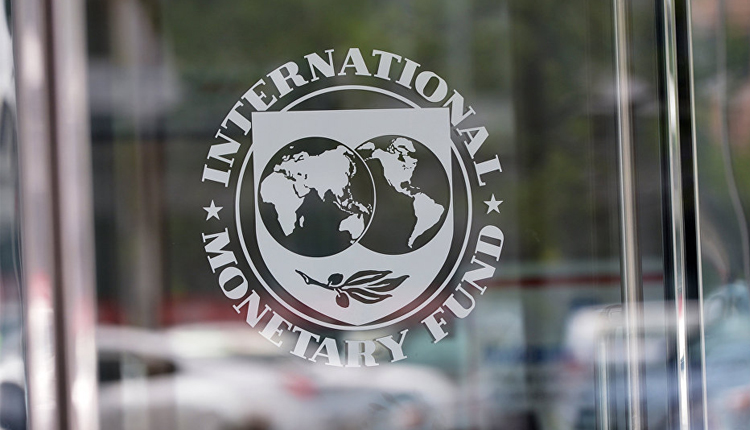In a display of financial independence, Egypt's military rulers last month turned down an offer of $3 billion from the International Monetary Fund, but budget pressures may force the country to take the money after elections later this year.
To avoid tapping IMF cash, the government has revised the budget that began on 1 July by cutting forecast spending by LE24 billion, vowing to fund its deficit from domestic resources and foreign aid.
Economists and diplomats say the numbers do not add up, and that Egypt may not have enough money to cover projected spending over the financial year, which ends on 30 June 2012.
The military rulers who took over after Hosni Mubarak was ousted may have a shorter time horizon in mind, hoping to keep the economy rolling until parliamentary elections in September that will bring in a government with a popular mandate to pick up the pieces.
The military has been reluctant to be tied even to the lenient terms offered by the IMF as it seeks to avoid any foreign interference.
A Reuters estimate suggests the government needs to raise at least LE50 billion in T-bills and bonds to meet its financing needs. That is LE10 billion more than it gathered in June and implies a potential gap that will be difficult even for the foreign aid from wealthy Gulf Arab states to fill.
This week, the Finance Ministry allowed $1 billion in 10-year Eurobonds to mature without rolling them over.
The government may also be overestimating revenues it can gather after the uprising to overthrow Mubarak in February drove away investors, put business plans on hold and sent tourists packing.
"All these elements lead us to expect stagnating government revenue, especially from taxes on income and profits and taxes on goods and services," Cairo-based Prime Holding said.
Prime estimated revenue would fall LE37.7 billion short of the LE349.6 billion the government was forecasting.
Some officials have mulled greater austerity but analysts say the military council is unlikely to countenance such steps when Egyptians are angry at the pace of reform and expecting an economic dividend from their uprising.
The government has already said it would raise the minimum wage, putting extra pressure on government finances.
Borrowing
Finance Minister Samir Radwan said last month that the revised budget for the financial year would save LE7.5 billion by reducing the subsidy the government pays industry and others for fuel.
But the Finance Ministry has given few other indications as to how it would cut spending by the announced LE24 billion.
The government says it hoped to finance a projected LE134 billion spending gap by raising LE14 billion, or about US$2.4 billion, from wealthy Arab countries and LE120 billion from the domestic treasury bill market.
Saudi Arabia and Qatar have given a total $1 billion. Part of a pledged $3 billion from the United Arab Emirates may also be allocated to support the budget, Radwan said.
Not everyone is downbeat about Egypt. Exotix, a frontier markets brokerage, said in a note: "We think the economy has more breathing space than often perceived."
It pointed to factors such as foreign pledges and the government's foreign debt of less than 20 percent of gross domestic product, even if domestic debt were more than three times that. It also said liquid state banks could act as lender of last resort.
Other analysts say the government may find the domestic market will struggle to absorb such huge amounts of T-bills and bonds.
In addition to the LE120 billion targeted to be raised from the domestic debt market, the government must pay back or roll over about LE380 billion in securities that mature over the next 12 months.
It will also have to roll over one or more times the shorter-term T-bills it plans to issue before the end of the fiscal year, bringing the amount of securities it needs to sell to some LE50-55 billion each month.
In June it sold about LE40 billion in bills and in May about LE48 billion.
"I think they will struggle, big time," said a senior Cairo-based banker. "In the last two to three weeks, they've been unable to raise the money. It's an indication. And I think people will become more nervous towards the elections."
So far in July, the central bank has sold only LE14 billion after coming up LE9 billion short at two auctions at the start of the month. Traders say it reduced the size of the two auctions because it wants to keep yields below 13 percent.
Yields
Banks on the other hand say they want higher yields in part to compensate for risk after a surge in their exposure to Egyptian government debt in recent months.
"Banks don't want to overexpose themselves to the government of Egypt, particularly when there are other opportunities coming through in the infrastructure space," said the banker.
Analysts say the government may be forced to rely increasingly on the three main state-owned banks, which control more than 40 percent of total bank assets.
Alternatively, the central bank could lower reserve requirements or raise interest rates to boost deposits, or it could create special facilities for the government, said one economist based outside of Egypt.
"The traditional fallback for governments when there's no other money to be had is to create new money," he said.
The IMF said it was still ready to provide support if Egypt were to seek help in the future.
"The fund would work with the authorities to assess the situation at the time of any future request," IMF regional deputy director Ratna Sahay said last week in an interview in IMF Survey Magazine.
"Generally speaking, if the authorities anticipate that there might be a need to borrow externally, it is always better for any country to request an IMF arrangement at an early stage when economic challenges are less daunting," she said.




